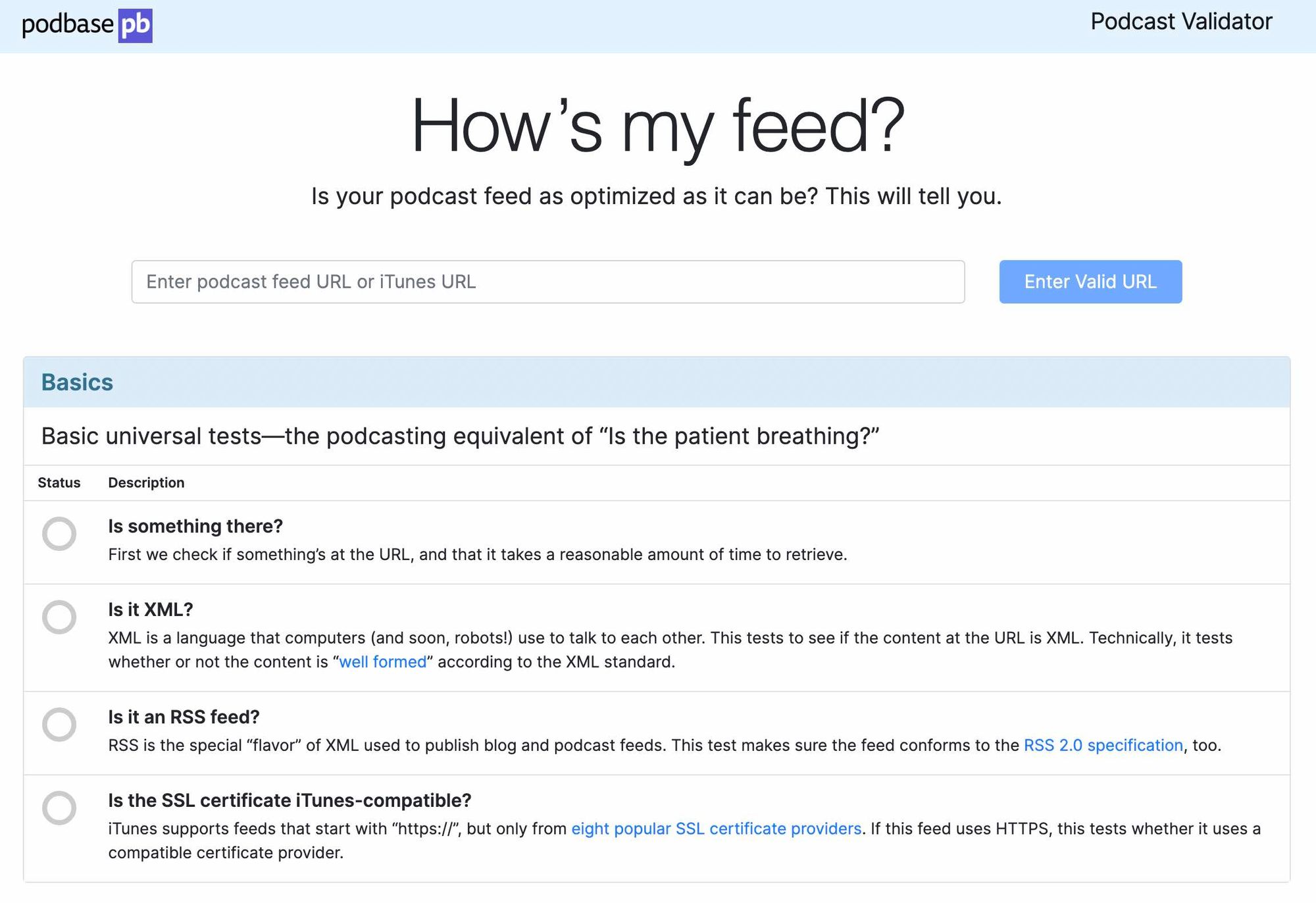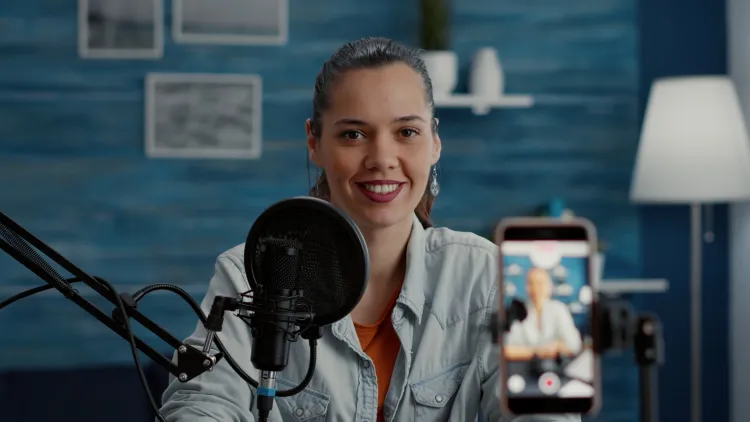If you’ve just started a podcast, you’ve probably seen the phrase “podcast RSS feed” floating around at some point.
And if you’re not sure what that actually means, you’ve come to the right place.
RSS stands for Rich Site Summary. Or, Really Simple Syndication. It’s basically a URL feed that contains all your show’s links and relevant information.
In this article, we’ll explain what a podcast RSS feed is, what it does, why it’s important, and how it works.

Book Your Next Podcast Guest the Easy Way
With more than 70,000 members, MatchMaker.fm is the largest online community connecting podcasters & guests.
Join MatchMaker todayWhat Is a Podcast RSS Feed?
To keep it nice and simple, a podcast RSS feed will automatically update information relating to your podcast, without you (the podcaster) having to do anything. So, rather than you manually uploading new content to each podcast directory (i.e. Spotify, Apple Podcasts, Stitcher, etc), your RSS feed will do it for you. And because each directory will constantly monitor your RSS feed, users will be shown new episodes as soon as they’re added to the feed.
Podcast RSS feeds are the key player in your content being seen and heard on each listening platform. And although you won’t have to keep editing your RSS feed once it’s set up, there are a few bits of information initially required. Such as:
- The title of your podcast
- A show description
- Artwork
- The category it falls in to
- What language it’s in
- An explicit rating (i.e. bad language, sexual references)
How Does a Podcast RSS Feed Work?
Because coding up a podcast RSS feed from scratch can be a bit complicated, most podcasters will use a podcast hosting provider to create it for them. And once they’ve set it up, all you’ll need to do is copy the link they give you, and enter it when prompted to when you join a new directory. This will connect your RSS feed to your chosen directory, acting as the middleman between you and your audience.
This process only needs to be done once. From there, your show’s details will automatically update whenever you add or change content. To put this into perspective, if someone subscribes to your show, they’ll receive a notification whenever you publish a new episode. Great.
If you’d like a more in-depth explanation into how podcast RSS feeds work, below is a step-by-step breakdown of the whole process, from start to finish:
- Record and edit your episode
- Send your MP3 file to your chosen podcast hosting provider (they’ll store all your episodes and show information in an online warehouse)
- The hosting provider then creates a podcast RSS feed link
- You (or your hosting provider) then need to submit the link to each directory you set up
- Your episodes will now be visible on listening platforms, like Spotify and Apple Podcasts
- When someone presses play, the RSS feed will ask the hosting provider for the audio file
- The podcast RSS feed then delivers the content to the listener
- The listener can now enjoy your episode
And that’s it. It’s a pretty simple process once you get your head around it.
Does Every Show Need a Podcast RSS Feed?
Yes, absolutely. There are no two ways about it.
Without a podcast RSS feed, your episodes won’t show up in your chosen directory. And that means nobody will be able to listen to it.
What Does a Podcast RSS Feed Look Like?
If you’re not familiar with coding, a podcast RSS feed might look a bit complicated. Don’t worry too much about this, because it’ll just work away in the background without needing any maintenance. But for context’s sake, have a look at one of ours below:

Can I Create My Own Podcast RSS Feed?
You can, but it’s not necessary. As mentioned previously, most podcasters aren’t coders and will rely on their hosting provider to do it for them. This is by far the easier option.
Enter our sister company, Podcast.co.
Podcast.co makes launching a new show really easy. Not only will we create and manage your RSS feed, we’ll also submit it to all the major directories on your behalf to save you the hassle. Find out more here.
Last Steps…
Once you’ve got access to your podcast RSS feed, you’re pretty much good to go. That being said, you might want to double check it’s working before you submit it to a directory.
The easiest way of doing this is to use Podbase:

Just copy and paste your podcast RSS feed link into the box, and it’ll run a quick diagnostics test to check for any problems. Chances are there won’t be any, especially if your hosting provider has done it for you. But it’s always better to be safe than sorry.
And that’s it, happy podcasting!

The #1 Podcasting Community
With more than 70,000 members, MatchMaker.fm is the largest online community connecting podcasters & guests.
Join MatchMaker today





